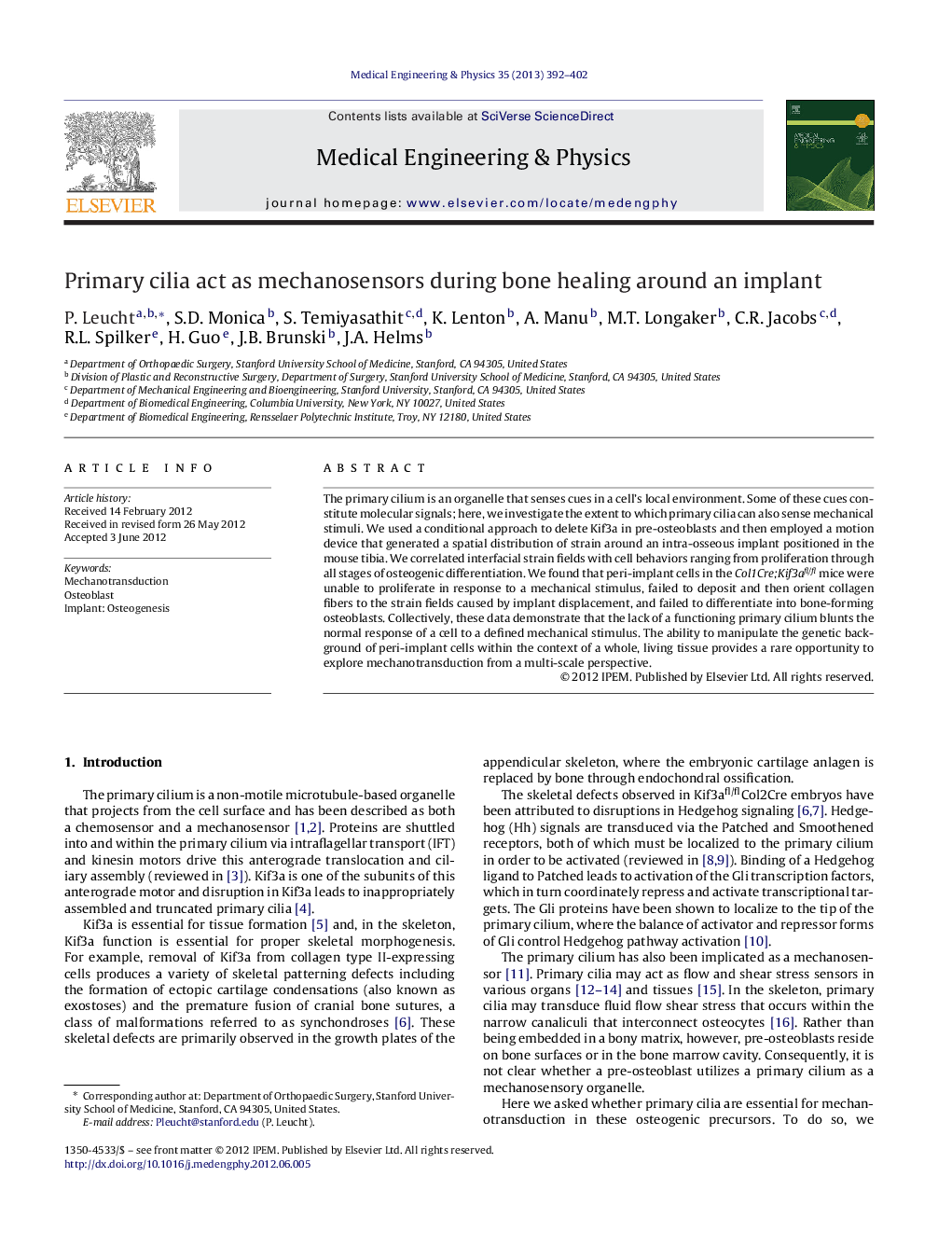| Article ID | Journal | Published Year | Pages | File Type |
|---|---|---|---|---|
| 10435112 | Medical Engineering & Physics | 2013 | 11 Pages |
Abstract
The primary cilium is an organelle that senses cues in a cell's local environment. Some of these cues constitute molecular signals; here, we investigate the extent to which primary cilia can also sense mechanical stimuli. We used a conditional approach to delete Kif3a in pre-osteoblasts and then employed a motion device that generated a spatial distribution of strain around an intra-osseous implant positioned in the mouse tibia. We correlated interfacial strain fields with cell behaviors ranging from proliferation through all stages of osteogenic differentiation. We found that peri-implant cells in the Col1Cre;Kif3afl/fl mice were unable to proliferate in response to a mechanical stimulus, failed to deposit and then orient collagen fibers to the strain fields caused by implant displacement, and failed to differentiate into bone-forming osteoblasts. Collectively, these data demonstrate that the lack of a functioning primary cilium blunts the normal response of a cell to a defined mechanical stimulus. The ability to manipulate the genetic background of peri-implant cells within the context of a whole, living tissue provides a rare opportunity to explore mechanotransduction from a multi-scale perspective.
Keywords
Related Topics
Physical Sciences and Engineering
Engineering
Biomedical Engineering
Authors
P. Leucht, S.D. Monica, S. Temiyasathit, K. Lenton, A. Manu, M.T. Longaker, C.R. Jacobs, R.L. Spilker, H. Guo, J.B. Brunski, J.A. Helms,
